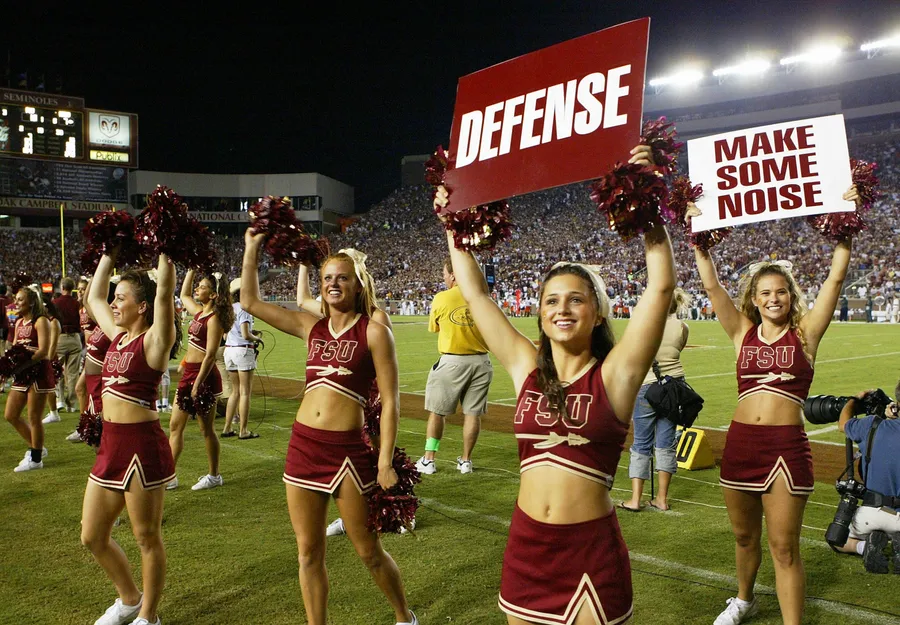PROVIDING YOU WITH ALL THE BEST BETS

Betting on college football versus the NFL often sparks debates among sports enthusiasts. Both have their own unique dynamics, audience, and strategies that can influence betting outcomes. While some argue that the unpredictability of college games offers greater value, others find the consistency and extensive data available for NFL games more favorable.
Let's dive deeper into the key factors that make betting on college football different from betting on the NFL.
Team Depth
College teams often have less depth compared to NFL teams, making them more vulnerable to the impact of injuries. While NFL rosters are filled with seasoned professionals and experienced backups, college rosters typically include a mix of promising freshmen and less experienced players.
This disparity can lead to significant performance fluctuations if key starters get injured. For instance, an injury to a star quarterback in college football can drastically alter a team’s prospects, whereas NFL teams tend to have more reliable substitutes.
Consequently, bettors need to keep a close eye on injury reports in college football, as the absence of a single player can heavily influence the game's outcome and, thus, affect the odds and betting strategies.
Talent Disparity
In college football, the talent gap between top-tier and lower-tier teams is significantly wider than in the NFL. Elite programs such as Alabama, Clemson, and Ohio State consistently attract and develop the nation's best high school talent, resulting in rosters that far exceed the capabilities of smaller, less renowned schools.
This disparity often leads to more frequent blowouts, where games are decided by large margins. Such mismatches can be crucial for bettors to consider, as they may create opportunities for point-spread betting. Games between vastly uneven teams often see bookmakers setting substantial spreads, which can be exploited if one has a keen understanding of both teams' strengths and weaknesses.
Accurate handicapping is essential to capitalize on these opportunities, making knowledge of team rosters and recruitment patterns invaluable.
Public Perception
Betting lines in the NFL can be significantly influenced by public perception and media coverage. High-profile players and teams often receive more attention, skewing betting odds. For instance, if a star player is hyped up in the media, casual bettors might flood the market, shifting the lines. This can create value for sharp bettors who look past the media noise and focus on analytical data.
In contrast, college football lines may be more closely aligned with actual team performance. With less media spotlight and a larger pool of teams, oddsmakers often rely on statistical analysis and performance metrics. Savvy bettors can find opportunities by diving deep into team statistics, recruitment insights, and player development. This nuanced understanding can offer an edge over those guided solely by public sentiment.
Coaching Consistency
NFL coaches typically enjoy longer tenures and boast extensive experience, which translates to more stable team performance and well-honed strategies. This longevity allows them to develop comprehensive playbooks, build cohesive units, and execute consistent game plans season after season.
In contrast, college football experiences frequent coaching changes due to the constant shuffle of talent and the allure of higher-paying positions or more prestigious programs. This turnover can disrupt team dynamics and alter strategies significantly. For bettors, the impact of coaching stability or change is crucial. A seasoned NFL coach's predictable approach might make it easier to forecast game outcomes.
Meanwhile, a college team's performance can fluctuate wildly under new leadership, presenting both challenges and opportunities for bettors willing to deeply analyze coaching backgrounds and transitions.
Rule Differences
Certain rule differences between the NFL and college football can significantly impact game outcomes and, consequently, betting strategies. For instance, the overtime rules vary: college football uses a format where each team gets a possession from the opponent's 25-yard line until a winner emerges (teams begin running alternate two-point conversion attempts if it reaches a third overtime). This can result in a higher scoring overtime compared to the NFL's sudden-death approach after the first possession. The NFL also declares a tie (regular season) if there is no winner after a 10-minute period.
Clock management also differs; in college football, the clock stops to reset the chains after a first down in the final two minutes of each half, which can lead to extended game time and more opportunities for scoring. These nuances require bettors to adjust their strategies, particularly when considering bets on totals and spreads, as the potential for additional points can shift the betting landscape dramatically.
Game Pace
College football games are generally faster-paced and higher scoring than NFL games, which can significantly affect over/under bets. The spread offenses common in college football promote rapid ball movement and frequent scoring opportunities.
Teams often utilize quicker snaps and no-huddle strategies, leading to more plays per game and increased scoring chances. The rules, such as the clock stopping after first downs, further enhance this dynamic, providing more opportunities for scoring drives.
For bettors, this means that high-scoring games are more common, making the over-bet often more attractive. However, savvy bettors must also consider matchups and defensive capabilities, as mismatches can lead to unexpectedly low scores.
Betting Volume
The sheer volume of games in a college football season offers bettors a wider array of opportunities but also introduces more variables to consider. With over 100 teams in the Division I FBS, there are multiple games each week, creating an expansive betting landscape. This variability can be a double-edged sword.
On one hand, it provides numerous chances to find favorable odds and take advantage of lesser-known matchups. For example, the Marshall Thundering Herd odds may be undervalued against the LSU Tigers.
On the other hand, bettors must sift through a vast amount of data, including team performance, player statistics, and coaching strategies.
The NFL, however, features a more consistent schedule with only 32 teams. This limited yet predictable slate allows bettors to focus more intensively on each matchup, gaining deeper insights and making more informed bets.
